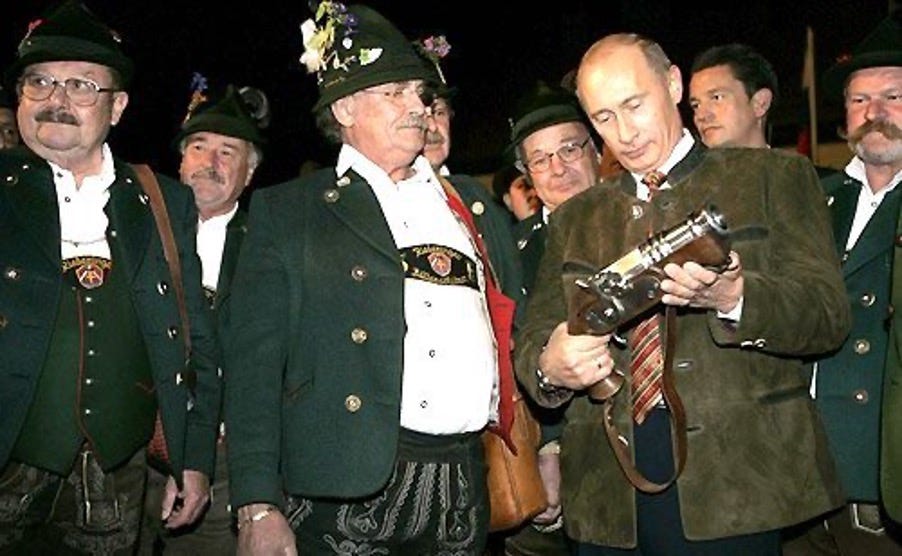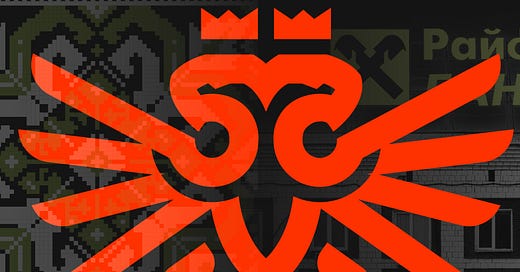Raiffeisen Bank International (RBI) is Austria’s second largest Bank – but its key business is not in the small Alpine republic where I spent much of my childhood, but rather to the east. Under former chairman Herbert Stepic (who resigned in 2013 amid one of the many scandals in which we will see the bank has been implicated), the bank was a major mover into the area opened up by the fall of the Iron Curtain in 1991 into eastern Europe.
This is a position that RBI retains today, with no area of operation more important to its bottom line or more controversial than its continuing business in Russia, where, as of last year, it was handling as much as 50% of the continued financial flow according to comments from a bank official to the Financial Times. That has been extremely profitable – at least on paper. According to RBI’s annual report, the 2023 profit for the RBI Group, including all of its daughter banks in other countries, was €2.3 billion – and down to only €997 million when excluding banks from Russia (and Belarus). It has insisted that it is seeking to wind down its Russia book and has seen its loan book decrease over the last two years.
But how serious is Raiffeisen about this effort?
RBI breaks out its profits from the Russian business at the beginning of its annual report precisely because its money in Russia is trapped there. RBI has tried two creative ways to get its money out. First, in talks with Russia’s Sberbank, which was placed under the tightest sanctions the US and its allies have to offer in February 2022, offering a swap of around €400 million of its frozen assets. And secondly, through a deal announced last December with the similarly sanctioned oligarch Oleg Deripaska that would see it transfer around €1.5 billion in its frozen Russian assets for his 27.8% stake in Austrian construction company Strabag.
Neither, however, has come to pass, nor do I expect them to. Although the bank has insisted in recent announcements of “no US connection” to the transaction, German and Austrian media have reported that US officials are seeking to put the kibosh on the transaction. And I expect they will succeed.
RBI has had a heck of a time managing its sanctions risk of late. After the European affairs website EUobserver on 10 March posted a letter from the US Treasury noting it had spoken with RBI “to discuss its Russia-based subsidiary,” the bank’s shares fell 7.4% on the following day. Worse was still to come.
On 20 March, the bank had to cancel a planned sale of €650 million in so-called additional tier 1 (at1) bonds, a financial instrument that is junior to a bank’s depositors and other creditors as they are designed to take losses when banks run into crises, and which even proved to be junior to equity in the 2023 collapse of Switzerland's similarly scandal-ridden bank Credit Suisse.
None of the above is new, nor is Austria’s deep infestation with Russian espionage and other malfeasance.
This is evidenced in the recent scandals involving Jan Marsalek, the chief technology officer at former startup unicorn Wirecard, who has been revealed to have been working with Russian intelligence and fled to Russia via Belarus after Wirecard’s 2020 collapse. There are also still-breaking developments around former Austrian intelligence officer Egisto Ott, who was recently accused of having sold Austrian interior ministry officials’ data to Russian intelligence in 2022 after the full-scale invasion of Ukraine. Ott was reportedly under surveillance for years but was only arrested on 29 March, after British officials shared alleged evidence of the sales with Austrian officials earlier in the month.
That brings us to the last two Austrian-Russian scandals worth mentioning, beginning with the so-called Ibiza Affair (or Ibizagate scandal).
In 2019, Austria’s then deputy prime minister, Heinz-Christian Strache, had to resign after he was surreptitiously filmed on the Spanish island famed for its hedonism accepting bribes from a woman claiming to be the niece of the little-known Russian oligarch Igor Makarov in exchange for electoral support. (NB: who was responsible for filming Strache and another ally has not been publicly disclosed).
Although Strache’s own attempts to resuscitate his political career have failed, the far-right Freedom Party (FPÖ) he once led survived a brief period in the wilderness. Today, it’s atop the Austrian polls, led by Strache’s former close ally Herbert Kickl. Kickl himself is implicated in Ott’s fate over reports that a 2018 raid he ordered on the Austrian intelligence ministry, the BVT, which Ott allegedly helped instigate. Both the junior coalition Green Party and the opposition Neos party have called for Kickl to be investigated.
“Some even believe that the worst potential fallout for RBI – blacklisting as a specifically designated national (SDN) by the US Treasury – would be something the bank could survive without major difficulty.”
I write this from the beauty of the Austrian city of Salzburg, where conversations in recent days about RBI’s actions have dumbfounded me. Much, probably most, of the Austrian business and legal elite seem to think that this is all a non issue. Some even believe that the worst potential fallout for RBI – blacklisting as a specifically designated national (SDN) by the US Treasury – would be something the bank could survive without major difficulty. While I think it is highly unlikely that Washington would do that, given the bank’s size and importance in other Eastern European markets, including Ukraine, the risk seems to be totally underplayed.

For what it's worth, the fate of Latvia's ABLV bank makes clear that European financial institutions cannot survive such action; it was shuttered swiftly after its 2018 SDN listing. Other banks have paid millions, and even billions, in fines for violating US sanctions.
To be clear, there is no evidence directly tying Raiffeisen Bank International or its subsidiaries to the Ibiza Affair, the Ott Affair, the Wirecard Affair, or the BVT Affair (as all are linked to Russia, you may, however, begin to sense the scale Austria’s problem).
But there is one final wrinkle I would like to draw attention to that has received almost no coverage thus far.
While Igor Makarov has made clear that the alleged niece involved in the 2018 Ibiza Affair was not a relative and claimed to have been bewildered as to why Strache would have thought he had any interest in Austrian politics, he has long had ties to the Russian state. From alleged politically-motivated meddling in Georgia’s electricity markets to his key role in the Russian-Ukrainian gas trade of the early 2000s, an infamously corrupt bit of business and one which has resulted in another Russian oligarch, Dmytro Firtash, fighting extradition from Austria to the US for the last 10 years (you guessed it, the Firtash Affair).
Makarov sold his main gas business, Itera, to Russia’s state oil giant Rosneft in 2013 but has continued to pop up occasionally, most often in Turkmenistan, which was once the source of some of the most corrupt parts of the Russian-Ukrainian gas trade. But while he remained free of US sanctions, he was blacklisted by the UK shortly after the full-scale invasion of Ukraine in 2022. However, the Ukrainian outlet Ukrainska Pravda reported on 5 March that Britain had quietly dropped sanctions on Makarov and that he had given up his Russian citizenship in late 2023.
Makarov almost certainly has a lot to tell about his old Russian-Ukrainian gas dealings and the corrupt officials involved. It would not be entirely unreasonable to think that he has more to say elsewhere.
As aforementioned, there is no evidence of direct involvement by RBI in any of these affairs. But its actions in trying to get swaps with sanctioned Russian entities despite US opposition seem representative to me of the same environment that has led to a seemingly never-ending list of Austrian-Russian affairs. Perhaps the bank is hoping that a potential second Trump term will see all of its Russia sanctions issues fall by the wayside and the bank able to repatriate its profits. RBI’s appetite for Russian political risk is representative of a much wider issue in Austria, and that is why I expect it is not the last time we will hear of it having related troubles.





